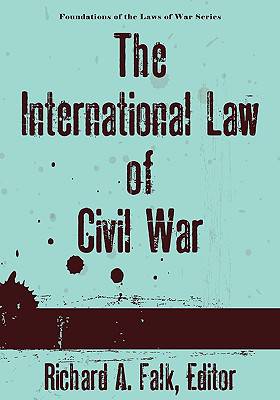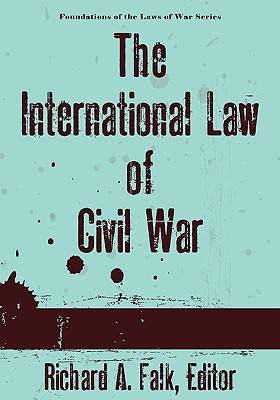
- Retrait gratuit dans votre magasin Club
- 7.000.000 titres dans notre catalogue
- Payer en toute sécurité
- Toujours un magasin près de chez vous
- Retrait gratuit dans votre magasin Club
- 7.000.0000 titres dans notre catalogue
- Payer en toute sécurité
- Toujours un magasin près de chez vous
The International Law of Civil War
53,45 €
+ 106 points
Description
Explores the Complex Relationship Between International Law and Civil War The current rash of civil wars seems to result both from the vulnerability of so many states to domestic violence and from the willingness of so many other states to promote or exploit this vulnerability for reasons of ideological solidarity, political expansion, national security, or human compassion. Thus, the kind of civil war that is most important to the maintenance of international order involves the interplay of interventionary diplomacy and domestic instability. International lawyers are deeply divided as to the wisdom of intervention policies, but they are agreed as to the imperative need for the international community to concur on rules of conduct that will prevent this escalation of local conflicts. The International Law of Civil War is the result of a special project sponsored by The American Society of International Law, designed to shed light on patterns in civil war situations and bring into focus the policy problems that arise from the interplay of domestic violence and external participation. The book highlights the essential features of typical civil war situations through six case studies: - The American Civil War, 1861-65 by Quincy Wright - International Legal Aspects of the Civil War in Spain, 1936-39 by Ann Van Wynen Thomas and A. J. Thomas, Jr. - The Algerian Revolution as a Case Study in International Law by Arnold Fraleigh - The Postindependence War in the Congo, by Donald W. McNemar - The Relevance of International Law to the Internal War in Yemen by Kathryn Boals - The Vietnam Struggle and International Law by P. E. Corbett The case studies are supplemented by an Introduction by the Editor, Richard A. Falk and Summary and Interpretation, by Edwin Brown Firmage. Emphasis is placed on the facts and law of external participation on behalf of either or both contending factions; the role of international institutions; the patterns of adherence to the laws of war by the parties to the conflict; and the patterns of settlement by which the violence was ended and order restored. Edited by RICHARD A. FALK, Albert G. Milbank Professor of International Law and Practice, Emeritus; Professor of Politics and International Affairs, Emeritus. Six case studies, all of them excellent. John G. Stoessinger, Foreign Affairs 49 (1970-1971) 755
Spécifications
Parties prenantes
- Editeur:
Contenu
- Nombre de pages :
- 476
- Langue:
- Anglais
- Collection :
Caractéristiques
- EAN:
- 9781584777212
- Date de parution :
- 12-02-10
- Format:
- Livre relié
- Format numérique:
- Genaaid
- Dimensions :
- 178 mm x 254 mm
- Poids :
- 1038 g

Les avis
Nous publions uniquement les avis qui respectent les conditions requises. Consultez nos conditions pour les avis.





